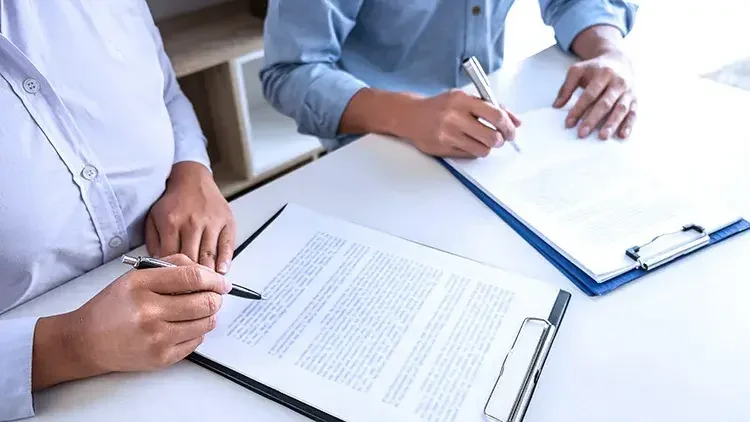As businesses try to operate during the COVID-19 pandemic, questions remain about liability issues and who is responsible if a customer or an employee becomes ill. Some companies have resorted to using liability waivers as a means of protecting themselves.

What is a liability waaiver?
A liability waiver is a contract between a customer and a business in which the customer agrees not to hold the business liable for injuries caused by the business. You've likely signed a waiver like this if you've ever gone snorkeling, rock climbing, or zip lining with an outfitter, or even joined a gym.
Liability waivers can be used to protect your business from illness caused by COVID-19.
According to Mario Iveljic of Mag Mile Law LLC in Chicago, "A business owner can use a properly drafted COVID-19 waiver to prevent a customer from recovering damages against the business owner if the customer proves that he or she contracted COVID-19 while on the business owner's premises."
Lindsey Wander, founder and CEO of WorldWise Tutoring LLC in Chicago, recently began using a liability waiver for her one-on-one and group tutoring sessions.
"I want to show due diligence to protect my company from the legal consequences of unintentional negligence. Learning is important, but so is safety," Wander says. She wrote the waiver herself then paid her attorney to review it. "I feel like having the waiver approved by a legal professional was money well spent."
Are COVID-19 liability waivers legal?
There is no definite answer about the legality of liability waivers since a COVID-19 waiver has never been tested in court.
"In some states, like Virginia and Louisiana, liability releases are virtually never enforceable," says Israel F. Piedra, attorney at Welts, White & Fontaine PC in Nashua, N.H.
Here are some situations in which a COVID-19 waiver, or sections of it, would likely not be enforceable:
- Includes provisions waiving liability for gross negligence of reckless conduct. Liability waivers that include these provisions are invalid across the board.
- Violates public policy. Piedra says this comes down to the circumstances—a waiver for a recreational activity would likely not violate public policy, but a waiver to see your doctor might be, since you need medical care. Similarly, a waiver to go into a grocery store might be against public policy since food is essential.
- Violates a law—specifically, a health law. "Statutory violations are often referred to as 'negligence per se,'" Piedra explains. "For example, if a state statute requires a roller coaster to operate at no more than 100 mph, and the business runs its roller coaster at 125 mph, causing a derailment, a liability waiver would be ineffective against a claim based on that statutory violation." He points out that you could also face a "patchwork of state, local, and federal laws relating to the pandemic," as well as what are merely health department recommendations, not actual laws. So, it's unclear what would constitute a statutory violation. Additionally, "many state and local rules are the product of executive order, not statute, which is another unique wrinkle."
What should be included in a liability waiver for COVID-19?
If you decide to use a COVID-19 waiver, you'll want to be sure it covers all the bases.
"The liability waiver would need to specifically reference COVID-19 and specifically disclaim liability for negligence," says Piedra. He warns that a waiver with a broad statement that customers "assume all risks" or that simply refers to the dangers of the coronavirus will not be enough.
The waiver also must specifically describe the "activities, circumstances, or situations" the customer is engaged in at your business, says Iveljic. This way the customer is clearly given notice about the risk they are assuming.
For example, if you are a salon owner, your waiver should describe the services a customer could be there for and make it clear that they agree that you have no liability if they contract COVID-19 from using your services.
It's important to note that, to protect your business fully, you must have a customer sign the waiver. Posting a sign on the door, in a window, or inside your business is not sufficient notice and does not create a contract.
Other liability issues to consider
The waiver applies only to customers who sign it.
Iveljic points out that "the waiver is only applicable between those two parties." If a customer comes into your business, signs the waiver, and gets COVID-19, they can't sue you. But if they infect a friend, that friend did not sign a waiver and could have a cause of action.
Waivers that you ask your employees to sign are not enforceable, since you, as an employer, have responsibility for their safety. Waivers signed by a parent for a minor child are also not enforceable.
No one knows yet how these liability waivers will hold up in court, so you may want professional guidance if you decide to use one.

